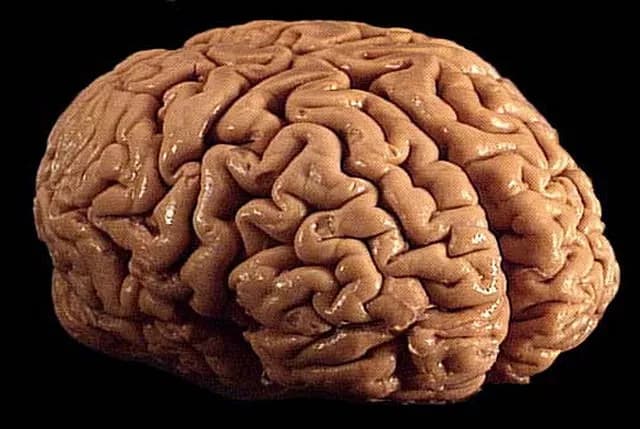
Brain Insulin Resistance Identified As Possible New Link Between Alzheimer's Disease, Diabetes
Several epidemiological studies support the hypothesis that diabetes increases a person's risk for developing Alzheimer's disease. However, new research from the Icahn School of Medicine at Mount Sinai published in the journal Alzheimer's and Dementia suggests the reverse -- that Alzheimer's disease (AD) impairs insulin signaling in the portion of the brain responsible for regulating metabolism, making a person with AD more likely to develop diabetes. Findings also indicate that an increase of a particular group of amino acids in the blood could serve as a biomarker of impaired brain insulin signaling.
The study, conducted in mice, is part of ongoing research funded by the National Institutes of Health (NIH) to better understand the link between AD and diabetes. It is the first study to show that mice with AD have insulin resistance (a precursor to type II diabetes) in the hypothalamus, the area of the brain that regulates metabolism of nutrients such as fatty acids, glucose, and amino acids in tissues including muscle, liver, and fat. The mice with AD also showed elevated levels of branched chain amino acids (BCAA) in the blood. A previous study from the same team of researchers had demonstrated that brain insulin signaling regulates BCAA levels in blood, and hence BCAAs could be a novel biomarker of hypothalamic insulin action in patients with Alzheimer's, which still needs to be confirmed in humans.
"This is the first study to suggest that Alzheimer's disease pathology increases susceptibility to diabetes due to impaired insulin signaling in the hypothalamus," said Christoph Buettner, MD, PhD, Associate Professor of Medicine, Endocrinology, Diabetes, Bone Disease and Neuroscience, Icahn School of Medicine at Mount Sinai, and lead author of the study. "Our research provides a rationale that therapies developed to improve insulin signaling in the brain may reduce the likelihood that a patient with Alzheimer's disease develops diabetes."
Alzheimer's disease is a progressive and fatal brain disorder that gradually destroys a person's memory and ability to learn, reason, make judgments, communicate, and carry out daily activities. AD is the most common form of dementia and sixth leading cause of death in the United States. Diabetes, the seventh leading cause of death nationally, is a metabolic disease that results in high blood sugar levels because the body does not produce enough insulin for proper function. Aging is known to be one of the top risk factors for both diseases, and several previous epidemiological studies have supported the hypothesis that diabetes increases a person's risk for AD.
"Our findings represent a turning point in the understanding of the relationship between Alzheimer's disease, type II diabetes and insulin resistance," said Sam Gandy, MD, PhD, Professor of Neurology and Psychiatry; Associate Director, Mount Sinai Alzheimer's Disease Research Center; and co-author of the study. "Compelling and unexpected results such as Dr. Buettner's are driving a complete re-evaluation of how these diseases interact. Now that we have disease genes for dementia and diabetes, those genes are our ground zero, and the challenge is to work out all the steps and missteps between the gene and the patient and then to find interventions that cure those missteps."
The above post is reprinted from materials provided by Mount Sinai Health System. Note: Materials may be edited for content and length.
Disclaimer: DoveMed is not responsible for the adapted accuracy of news releases posted to DoveMed by contributing universities and institutions.
Primary Resource:
Ruiz, H. H., Chi, T., Shin, A. C., Lindtner, C., Hsieh, W., Ehrlich, M., ... & Buettner, C. (2016). Increased susceptibility to metabolic dysregulation in a mouse model of Alzheimer's disease is associated with impaired hypothalamic insulin signaling and elevated BCAA levels. Alzheimer's & Dementia.
Related Articles
Test Your Knowledge
Asked by users
Related Centers
Related Specialties
Related Physicians
Related Procedures
Related Resources
Join DoveHubs
and connect with fellow professionals

0 Comments
Please log in to post a comment.